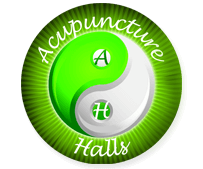
Photo credit to freepik.com
Athletes constantly seek ways to enhance their performance and prevent injuries. While various methods such as strength training, stretching, and proper nutrition are commonly employed, the role of acupuncture, specifically targeting the psoas muscle, is gaining recognition. The psoas muscle, integral for core stability and hip flexion, plays a significant role in athletic movements. This article explores the evidence and strategies behind utilizing acupuncture for optimizing athletic performance and preventing injuries, with a focus on the psoas muscle.
Understanding the Psoas Muscle
The psoas muscle, comprising the psoas major and psoas minor, is a deep-seated core muscle connecting the lumbar spine to the femur. Its primary function involves hip flexion, but it also contributes to stabilizing the spine, maintaining posture, and supporting movements like running, jumping, and kicking. Due to its involvement in various athletic activities, any dysfunction or tension in the psoas muscle can significantly impact performance and increase injury risk.
Acupuncture and its Mechanisms
Acupuncture, a key component of traditional Chinese medicine, involves the insertion of fine needles into specific points on the body to stimulate healing and restore balance. In the context of athletic performance and injury prevention, acupuncture acts through several mechanisms:
- Pain Relief: Acupuncture stimulates the release of endorphins, the body’s natural painkillers, which can alleviate discomfort associated with muscle tension or injury.
- Muscle Relaxation: Acupuncture promotes muscle relaxation by reducing muscle spasms and improving blood circulation to the affected area.
- Balancing Energy Flow: According to traditional Chinese medicine principles, acupuncture helps balance the flow of Qi (vital energy) along meridian pathways, addressing imbalances that may contribute to muscle dysfunction.
- Neurological Effects: Acupuncture influences the nervous system, modulating pain perception, reducing inflammation, and enhancing neuromuscular coordination, all of which are crucial for optimal athletic performance.
Evidence Supporting Psoas Acupuncture
While research specifically focusing on psoas acupuncture in athletes is limited, several studies have investigated the efficacy of acupuncture for enhancing sports performance and preventing injuries. Additionally, anecdotal evidence and clinical experience support its use in this context. Key findings include:
- Improved Flexibility and Range of Motion: Acupuncture sessions targeting the psoas muscle can enhance flexibility and range of motion in the hips, facilitating smoother and more efficient movement patterns during athletic activities.
- Reduced Muscle Tension and Soreness: Athletes often experience tightness and soreness in the psoas muscle due to repetitive movements or overuse. Acupuncture can help alleviate muscle tension and soreness, promoting faster recovery and reducing the risk of injury.
- Enhanced Core Stability: The psoas muscle plays a crucial role in core stability, which is essential for maintaining proper posture and generating power during athletic movements. Acupuncture sessions focusing on the psoas can strengthen core stability, improving overall performance and reducing the risk of back injuries.
- Injury Prevention: Regular acupuncture treatments targeting the psoas muscle can help identify and address imbalances or dysfunctions before they manifest as injuries, thus serving as a proactive measure for injury prevention among athletes.
Strategies for Incorporating Psoas Acupuncture
Integrating acupuncture into an athlete’s training regimen requires a tailored approach based on individual needs and goals. Some strategies to consider include:
- Pre-Event Treatment: Providing acupuncture sessions targeting the psoas muscle before competitions or intense training sessions can help athletes prepare mentally and physically, enhancing performance and reducing the risk of injury.
- Post-Event Recovery: Acupuncture sessions following strenuous activities can accelerate recovery by promoting muscle relaxation, reducing inflammation, and relieving soreness in the psoas muscle and surrounding tissues.
- Maintenance Sessions: Incorporating regular acupuncture sessions into an athlete’s overall wellness routine can help maintain optimal muscle function, prevent imbalances, and reduce the likelihood of overuse injuries over time.
- Comprehensive Assessment: Conducting a thorough assessment of an athlete’s biomechanics, movement patterns, and musculoskeletal health can guide the development of an individualized acupuncture treatment plan focused on addressing specific issues related to the psoas muscle.
Conclusion
Psoas acupuncture offers a promising adjunctive therapy for athletes seeking to optimize performance and prevent injuries. By targeting the psoas muscle, acupuncture can improve flexibility, reduce muscle tension, enhance core stability, and mitigate the risk of overuse injuries. While more research is needed to establish definitive evidence supporting its efficacy in athletic contexts, anecdotal reports and clinical experience suggest that psoas acupuncture holds considerable potential as a valuable tool in the athlete’s toolkit for achieving peak performance and longevity in sports.
Incorporating acupuncture into an athlete’s training regimen requires collaboration between acupuncturists, sports medicine professionals, and coaches to ensure a comprehensive and individualized approach that addresses the athlete’s specific needs and goals. With proper integration and ongoing evaluation, psoas acupuncture can contribute to enhancing athletic performance, promoting overall well-being, and supporting longevity in sports careers.
Visit Acupuncture Halls in San Juan Capistrano, California, if you’d like to give psoas acupuncture therapy a try. Best psoas pain treatment is provided by this clinic, which has a board certified licensed acupuncturist. Call 949-510-6333 or use the Acupuncture Halls Contact Form to schedule an appointment.
